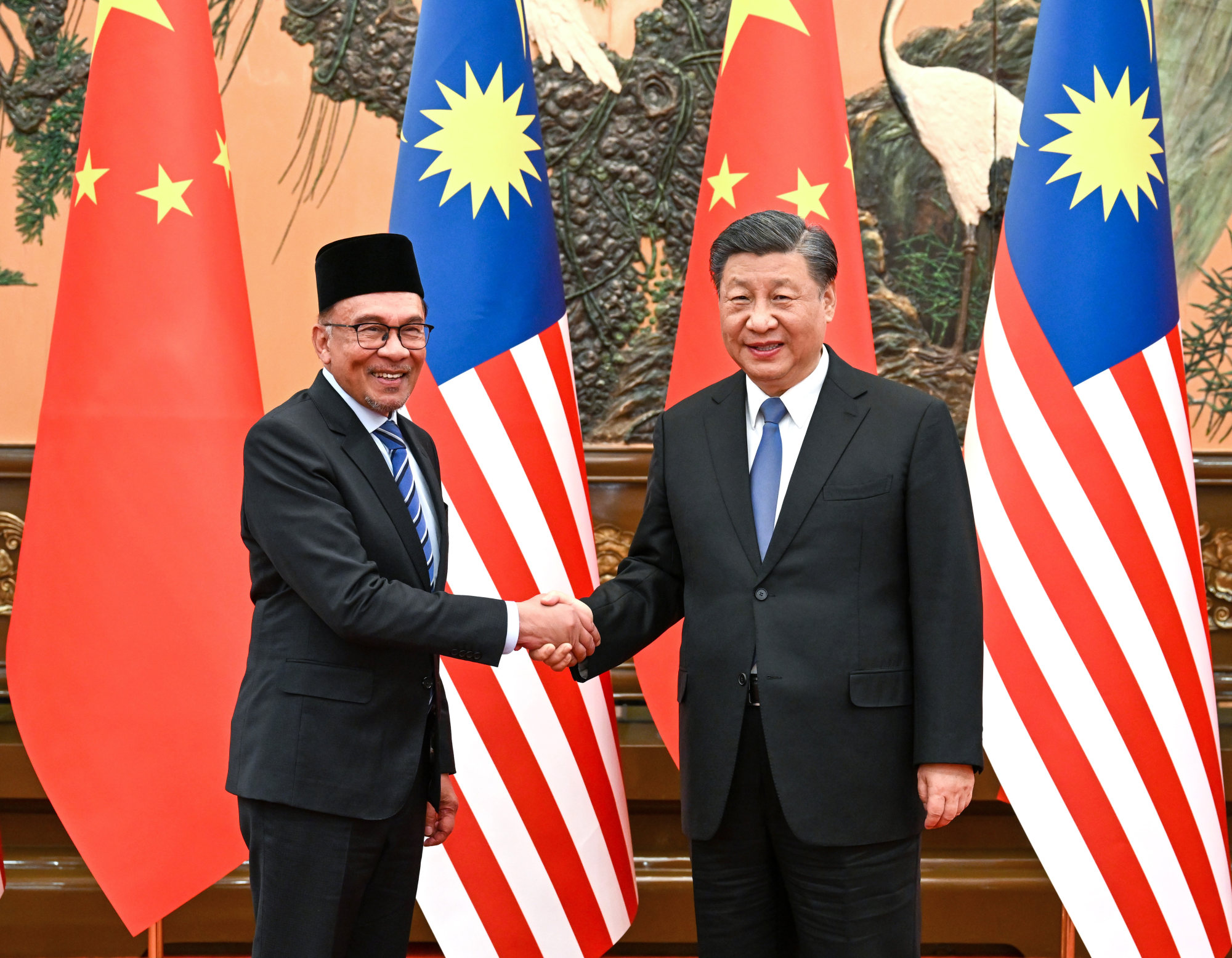Malaysia urged to follow Philippines’ lead and get tougher with Beijing over South China Sea claims
China has repeatedly encroached into the waters of Malaysia’s exclusive economic zone, particularly around Sabah and Sarawak. These incursions, often involving Chinese coastguard ships, have intensified in recent years following the discovery of significant oil and gas reserves.
“They [China’s government] claims that the South China Sea belongs to them, but they have not stopped ships from passing through,” Mahathir said at the Nikkei Future of Asia conference in Tokyo last month.
“As long as there is no stoppage of the passage of ships through the South China Sea, then it’s good enough.”

“If they have problems with China, they should not impose it upon us. We do not have a problem with China,” Anwar said.
China has been Malaysia’s largest trading partner for the past 15 years, currently accounting for some 17 per cent of the country’s total trade volume.
Yoshihara, author of the 2022 book Mao’s Army Goes to Sea, which details the founding of the Chinese navy and the start of Beijing’s maritime and island-building campaigns, suggested that Kuala Lumpur could learn from Manila about how to “deal with peacetime coercive intimidation tactics” in the South China Sea.
“The violent force of the water cannons suggested they can inflict casualties and perhaps even death. China is sort of struggling to deal with this new narrative,” Yoshihara said.
“Once we get to that point, certainly we would have crossed the Rubicon. Is that a red line? Almost certainly it’s going to be a red line,” Marcos Jnr said.
“China has exercised great restraints in the face of such infringements and provocations,” said Chinese Defence Minister Dong Jan at the forum.
The Philippines, a former US colony, signed a mutual defence treaty with Washington in 1951, dictating that both nations would support each other if either were attacked by an external party.
